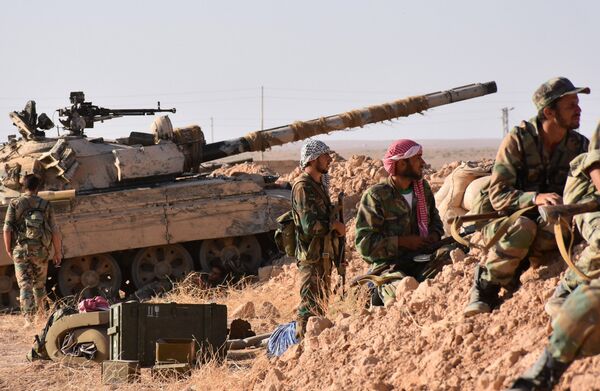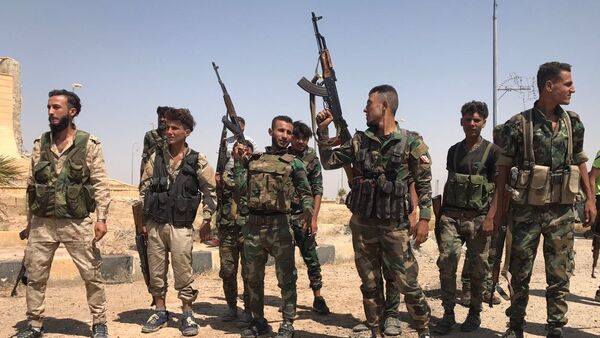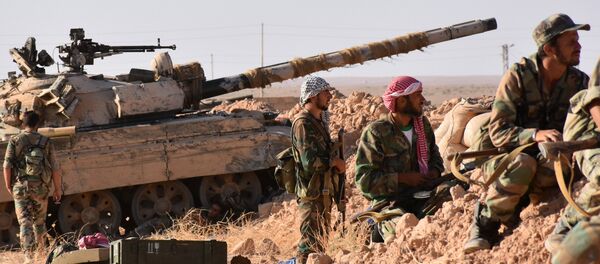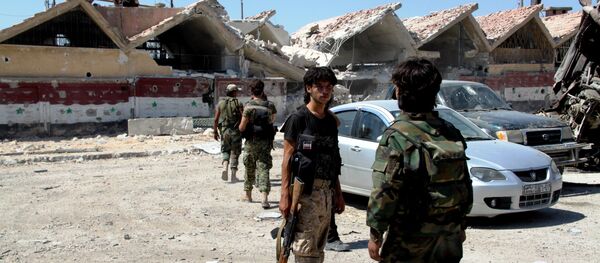The Syrian army has broken the siege of Deir ez-Zor area by Daesh terrorists, the biggest breakthrough against the terror group since the terrorists first launched an offensive on the province in 2014.
Last week, the Syrian army liberated the strategically important village of Kabajib, to the southwest of the city, which essentially serves as the gateway to the main access road leading to the city of Deir ez-Zor. To the west of the city, the troops have broken the Daesh blockade and in the east, elite units have reached the Deir ez-Zor airbase.
"The Syrian army has to completely clear [the city of] Deir ez-Zor of the militants, then end the siege of Deir ez-Zor airport and clear the towns of al Mayadeen and Abu Kamal of the militants. This has to be done in order to reach the Iraqi border."
"The Syrian army will also have to coordinate its actions with the Iraqi armed forces. Only this way is it possible to completely destroy the remnants of the terrorist forces. We must not forget the Jabhat al Nusra rebels who left for Idlib, I have no doubt that they will suffer the same fate as Daesh in other parts of the country." Harba said.
Last week, UN Special Envoy for Syria Staffan de Mistura said that he expects Deir ez-Zor, Raqqa, where the US-backed Kurdish-led Syrian Democratic Forces (SDF) is driving out Daesh, and Idlib to be liberated by the end of October.
The liberation of Idlib, where al-Qaeda affiliate Jabhat al Nusra has a strong presence, is anticipated to be a tough battle because many Islamic terrorists have fled there from other parts of Syria.
Earlier, Mistura told Sputnik that Kurdish involvement in the Syrian resolution is vital to the peace process there, and that the Kurds should take part in the Geneva peace talks, a position supported by Russia.

"It is possible that the US has stopped betting on Daesh and has moved onto another plan. I have in mind the establishment of an independent Kurdish state. In the near future, there will be a referendum on the independence of Iraqi Kurdistan, as well as local elections in areas controlled by the Kurds in the north of Syria."
"I have no doubt that these steps are being taken with the support of the US in view of the successes of Syria and Russia in the war against terrorists. The US is trying to destroy Syrian statehood. In this regard, the creation of an independent Kurdish state becomes more dangerous for the Middle East than the weakening threat of Daesh. The problem has to be solved diplomatically, and Russia will insist on the Kurds' more active involvement in the processes of political settlement in Syria that take place in Astana and Geneva."
The safe zones, created with help from Russia, Turkey, and Iran, have been operating in southern Syria, Eastern Ghouta and Homs province. Talks on the fourth safe zone in Idlib province are currently underway.




